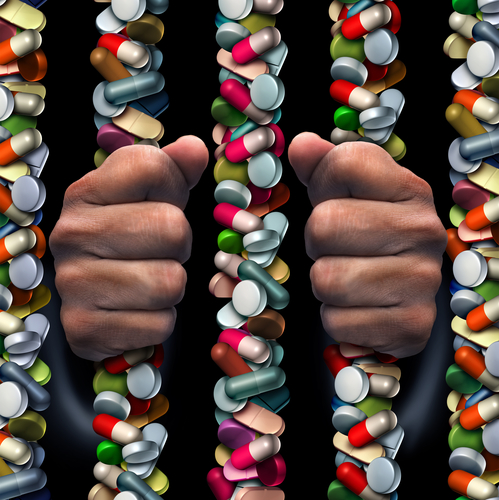
The Opioid Epidemic – What Are Some Doctors Thinking?
Amanda recently broke her arm in a horseback riding accident. It was a bad break that required emergency surgery. After the surgery, without asking any questions, the doctor handed her a prescription for Oxycontin. There was no information about the addictive qualities of the drug given. There were no instructions about taking the medicine and how to dispose of it once you were done. There were no questions asked about teens that could have access to it, and no questions about her addiction history.
Luckily Amanda knows enough about medicine to heed her own set of warning and she took the Oxycontin very minimally. She got through the first week after surgery with just a few pills combined with Tylenol. However, if she were like thousands of other Americans, this same situation could have led to an ugly drug addiction that could have ultimately ended her life.
What You Need To Know About The Opioid Epidemic
Opioids include painkillers like Oxycontin, but they also include dangerous street drugs like heroin. The opioid epidemic in America is continuing to rage on, and a huge portion of opiate abuse is beginning in the doctor’s office. Patients, like Amanda, go in for routine procedures and walk out with a script for a dangerous narcotic. There is often minimal education or warning given along with the prescription.
Teens and young adults fall victim to addiction this way on a daily basis. They also share their medicine with friends, causing more addiction and also the danger of mixing substances, which can prove to be lethal. Without their conscious awareness, individuals can find themselves hooked on pills like Oxycontin, and when their script runs out, they are left scrambling.
Doctor Shopping For Pills
This is where the term “doctor shopping” comes into play. Prescription drugs addicts often visit to multiple doctors to obtain the needed amount. Extremely loose policies are in place to cross reference doctors and prescriptions given to a patient, but unfortunately, it is viewed as an annoying extra step. Because of this, it is often avoided.
If doctors took the time to do some background research on their patients, they’d be able to flag a lot of potential problems. There would most likely be a sharp drop in the number of drug addictions and overdoses, just because the medicine would be more difficult to get.
The Numbers Are Scary
According to the National Institute on Drug Abuse (NIDA), the total number of opiates prescribed in America skyrocketed from 76 million in 1991 to nearly 207 million in 2013. Hand in hand with that, the number of hospital visits due to the non-medical use of opioids more than tripled. Opioid overdoses have more than tripled in the past few years as well.
The Link Between Prescription Pills and Heroin
Most people don’t plan to or aspire to become addicted to heroin. What starts with a prescription painkiller can be a slippery slope that lands people right on a heroin dealer’s doorstep. Drugs like oxycontin and heroin are in the same family, and have relatively similar effects, with varying strength, etc. When a person runs out of doctors to prescribe them their opiate of choice, they are extremely likely to turn to heroin because heroin is cheaper and more readily available.
It’s such a fast and dangerous slope to be on. Why do you think so many addicts wonder “how did I get here?” Dabbling with heroin is pretty much the last stop because the initial high provides such a feeling of euphoria that an addict will spend the rest of their time chasing that high. There’s no end in sight besides getting addiction treatment or dying from an overdose or other complication from drug use.
The Healthcare Industry’s Role in the Opioid Epidemic
Such a huge part of this problem starts with doctors, prescription drug manufacturers, and insurance companies. Ideally, it would be mandatory for doctors to perform a background check on each patient before prescribing medication. Currently, the opposite is the case. Doctors are careless and the big pharmaceutical companies would rather see their money keep flowing in instead of saving lives.
The opioid epidemic can be overwhelming, especially for those who have personally been touched by substance abuse, individually or via someone they love. There are things that you can do to help, though. Like Amanda, educate yourself about any pill that a doctor prescribes to you. Don’t trust that your doctor knows best. Ask plenty of questions. Make sure to keep your pills in a safe place so that they don’t get into the wrong hands.
Drugs are serious, even the ones that come in a pretty blue bottle from your local pharmacy. Know what you are getting into, stay informed, and never hesitate to ask questions.






